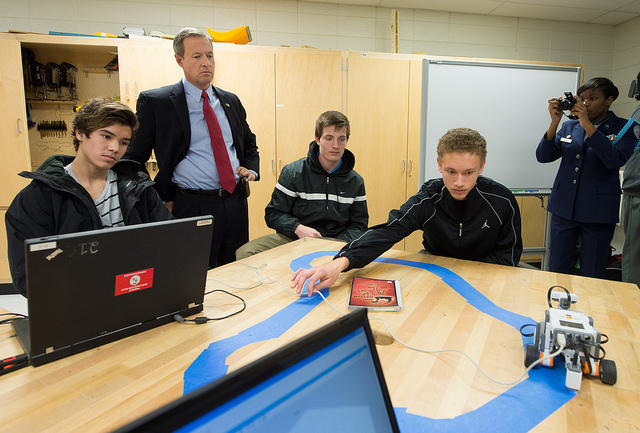Education Technologies and Concepts that Every Teacher Should Know: Part I
Click here to read all the posts in this series.
The Information Era began some decades ago. Since its inception, though, it has dramatically changed the way we educate our children. We live in a world of rapid change and the resemblance to yesterday is fleeting. Above all, communication has changed, and an enormous variety of information is now accessible to almost everyone at the click of a mouse or swipe of a finger. Old-fashioned classrooms equipped only with books and chalkboards are long gone. In their place, we have new technologies and concepts such as Internet research, experience-based education, virtual learning, and online live assessments are being introduced to meet educational needs in the Information Era.
Throughout 2013 and during the first half of 2014, we have seen a lot of advancement in education technology designed for the classroom, and to be effective, teachers need to stay abreast of these new technologies and concepts. The summer is the perfect time for teachers to receive retooling in the area of education and several innovations and concepts are available to help teachers familiarize themselves with important concepts.
In this five-part series, I plan to discuss education technologies and concepts that every teacher should know about. Some are old, some are new, and some nascent, but they all have viable classroom uses. I’m interested to hear your thoughts on these technologies and concepts in the comment section as well.
BYOD. The first thing I want to discuss is a concept of technology that basically embraces mobile technology through the devices that students already own. As a kind of movement within education, BYOD has already gained momentum in many districts across the country, but should continue towards mass adoption within this calendar year. Places like Chesapeake Public Schools are already allowed to use privately owned electronic devices to access the wireless network on the school system’s filtered Internet. In Chesapeake, as in the other public and private schools where BYOD policies exist, students must sign a responsibility form that says they will only use the mobile device for academic enrichment while on school property. Students who bring their own devices into the classroom eliminate the initial costs and are also already comfortable with the technology. The downside is that not all students can readily afford such technology. Many must look for schools to develop technology financial assistance programs for families to help offset the full cost and maintenance of school-owned devices.
Customized learning experiences. Self-initiated and self-directed learning experiences are based upon the needs, preferences, and abilities of individual students. The traditional way to look at learning is via the creation and assignment of work by teachers in a one-size-fits-all approach for every classroom. Customized learning, however, allows students to direct focus on feedback techniques that provide strategies for improvement during the process, instead of waiting for a given test period see if the methods are working.
Considering pros and cons of this concept, we must not that customized, or personalized, learning is often met with hostility, especially as teachers must relinquish some classroom control for this trend to really work. On the flip side, though, customized learning has the potential to incorporate a variety of resources, such as virtual learning, to aid in the learning process while allowing teachers to moderate one-on-one learning experiences in practical ways. I think that the idea of handing control to students is frightening to some educators and administrators but once attempted, even on a small scale, it is easy to see the benefits of personalized learning.
Online learning. Virtual learning is certainly not new to the K-12 scene, but its increasing popularity is difficult to ignore. Once, only the world of distant learning embraced the process of online learning. Today, though, online learning is segmented and increasingly a part of a more traditional learning experience. It is no longer all or nothing. Distance learning has become mainstream and will continue to transform in-classroom learning in the coming year.
Virtual learning also makes it possible for parents, teachers and students to have access to information they may need regardless of their actual physical location. In essence, it expands the classroom and gives students more time and space to complete and comprehend their lessons.
In coming posts, we will look at more technologies and concepts that every teacher should know.
Read all of our posts about EdTech and Innovation by clicking here.




